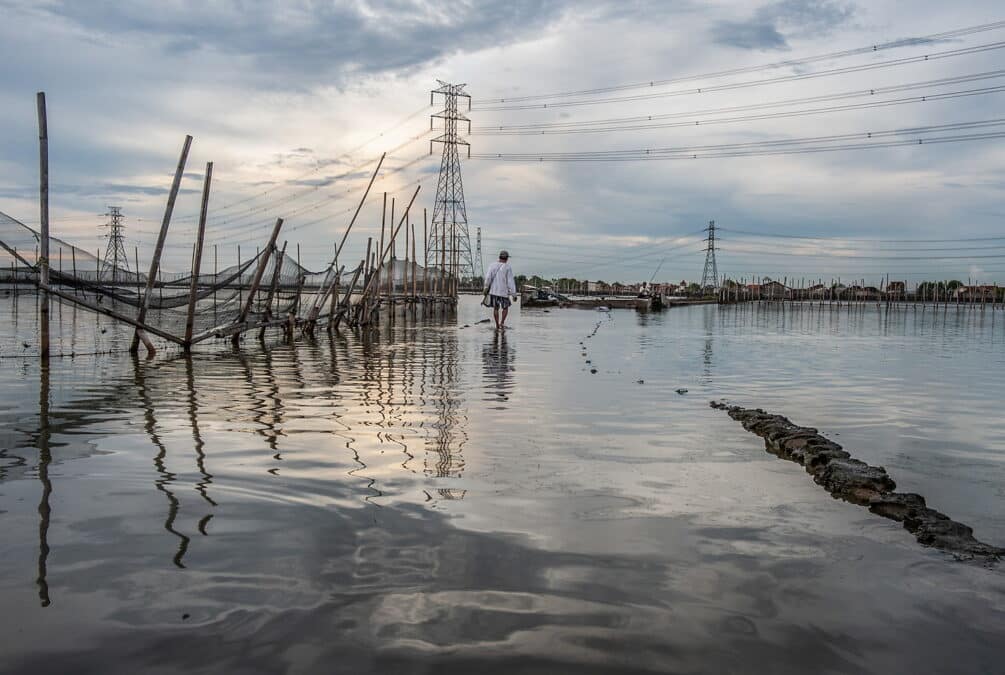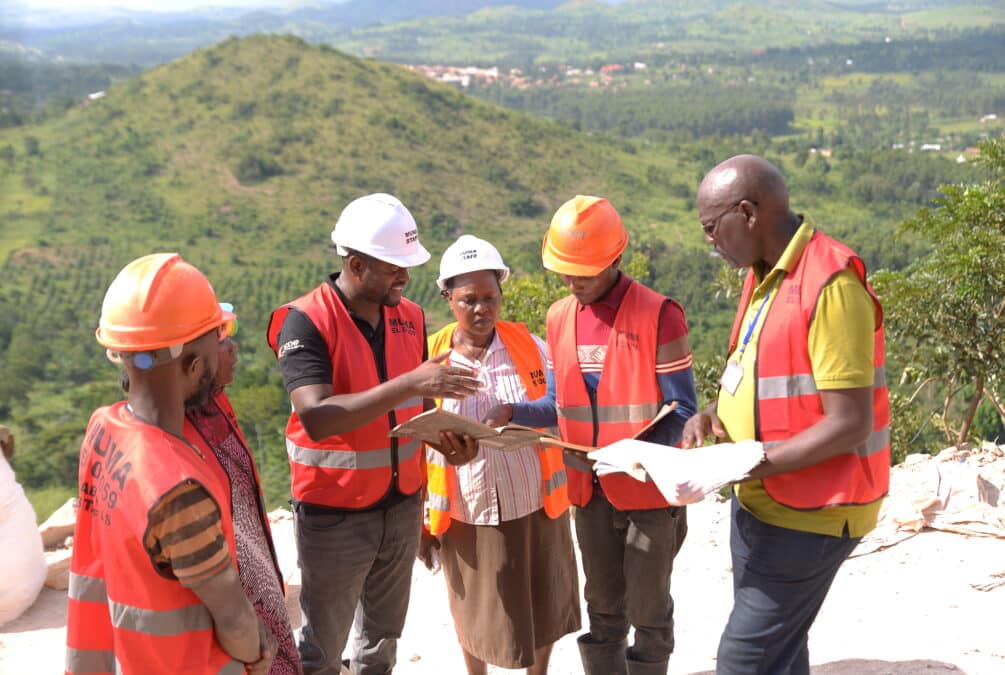Their approach is centered on knowing that their role is to provide some materials, tools, and guidance.
What do you think is unique about BRAC’s approach, and why do you think it’s important to amplify that message?
Elise: I think they have a very human approach, and they pay particular attention to the details, for example, in how they speak to people and what words they use. Ensuring the language we use is inclusive and promotes dignity is a cornerstone of the way that BRAC works and is something we incorporated when telling their stories. The way they frame their narrative indicates how they see the human being and how they go about their work, with extra care and sensitivity. This aligns well with our work at Makmende. We’re constantly asking the questions: how are we looking at certain problems or how are we looking at certain people? And is that the right perspective or are we conditioned to view specific situations in a specific way?
Niall: Everyone talks about the dignity of the people, it’s standard practice with NGOs or charities or foundations. But with BRAC, it really does start with the dignity of the people – and everything they do is about preserving that dignity. The way that you talk about and frame their stakeholders matters. BRAC knows that coming up with solutions, whether related to health, education, etc., requires respect, and an understanding that the communities themselves know what’s good for them and have the ability to think through solutions. They just don’t necessarily have all the materials and resources to make it happen.
BRAC has made a huge difference over the last 50 years. One thing they talk about, and I believe because I’ve seen it, is their humility. It’s so different from traditional Western models of development, where there’s often this arrogant sense of “we know better.” But BRAC doesn’t think they know better than the people they serve. Their approach is centered on knowing that their role is to provide some materials, tools, and guidance. They’re humble enough to trust people to create their own progress.
Dignity in storytelling is something we know well at Makmende.
Why does collaboration between BRAC and Makmende make sense?
The Makmende approach to storytelling is founded on the same principles that guide BRAC: Be human-centered. Like with BRAC, an essential piece of that puzzle is working with local people. Elise elaborates:
Elise: One of the most important parts of our collaboration with BRAC is the quality of the crew on the ground. Frank — our DoP in Tanzania — had an eye for detail, and is someone that really knows how to tell a story visually, and also make people feel at ease. He’s also from a rural community. So I think in that sense, he can bond very well with the people whose stories he’s weaving together.
Dignity in storytelling is something we know well at Makmende and an important part of the way that BRAC positions itself within the communities they serve. It’s all about looking at problems and solutions through a human lens. BRAC’s work is in supporting human beings to create their own solutions. It’s about empowering, enabling and accompanying – something completely different from the precedent set by many NGOs and development organisations operating with a more top-down approach.
Why was it important for you to deep dive into the communities themselves to pull out the red threads of communication for a program like BRAC?
Elise: Diving deep into the communities, essentially mirrors the BRAC philosophy. People working for BRAC are from the communities – and these stories are an extension of who they are. Starting from the ground up to find the stories together with them was necessary to showcase just how community-driven BRAC programming is.
Niall: BRAC’s work is based around the relationships that they’re building with people in communities. A lot of the work is done is just being there to talk to the people who need whatever’s missing: medical attention, a school for their kids, a loan so they can start their business, etc. Their work requires going and having face-to-face conversations and asking the right questions. What do you need? What have you tried already? What’s worked? What hasn’t worked? That’s where BRAC really finds good solutions, by first really getting to understand the people; and for us observing this process allowed us to understand their approach on a deeper level. We needed to go and see their team members out there in the communities, understanding this really soft and subtle way of working with people.
Elise: When we visited them in Bangladesh, we understood how influential they were and how everything was focused on community alignment. It was so impressive to see how well it functioned, and how much traction they gained within the last 50 years. It almost felt as if every single person in Bangladesh had benefited from, knew of, used their systems, or had opened a bank account with BRAC. We were able to see clearly how they’re making a difference in society, and this insight enabled us to take a more holistic approach to explaining it. One thing that sets them apart from other NGOs is their South-South approach. Operating from the Global South themselves, they understand the problems at the local level and are building relationships based on trust.
Niall: In Bangladesh in particular, it was incredible to see how you can balance the two things: the organic people-led approach with a really well-organized central organizing body. BRAC headquarters is one of the biggest skyscrapers in Dhaka. There’s a different floor for each different project – it’s this huge organization. But then when you go out to the field, you see how much license is given to the people working in the field to kind of improvise and adapt the solutions depending on the local context.
We’re trusting them to tell whatever story is true to them and knowing that it will be powerful in its own way.
What about your experience on the ground left an impression – and how did that translate into your approach for the communication strategy and assets that Makmende developed?
Niall: It impressed us to see the scale of BRAC’s ambition and impact. They really do take a community-centric approach by remaining agile and continuously asking the right questions. What do people need here? What does the country need and what do individual communities need and how can we build it? Their efforts are driving progress forward – from education to banking and healthcare, they’ve built an infrastructure that exists only to help people and improve their lives.
Elise: We tried to show what it means if you have a different vision or a different perspective because there are so many words that you can use but they feel a bit empty or it’s kind of jargon. So I try to really make that perspective felt in the videos. Instead of people from the top down talking about the program’s impact, we pulled together the narrative using the storytelling perspective of the end user and how it improved their lives or what it meant to them. It was about sharing the positive and powerful stories of these people. Supported by BRAC and given the right tools, they can flourish.
Niall: Elise did a really good job of just finding a way to let the people tell their own stories. In the same way that BRAC gives people the kind of tools required to build their own lives, she gave them the platform to tell their own stories. Here too, trust is a key factor. We’re not determining a pre-established narrative to suit the organisation’s needs. We’re trusting them to tell whatever story is true to them and knowing that it will be powerful in its own way.
What does this experience on the ground mean to you and your approach to storytelling and potential continued collaboration?
Niall: [At Makmende] We’re already philosophically aligned with this different way of working than a lot of Global North NGOs. I’m really excited about the opportunity to show the world that there’s a different and better way to approach creating progress and social and economic development. There’s a more focused and inclusive way to help people improve their lives – with dignity.


